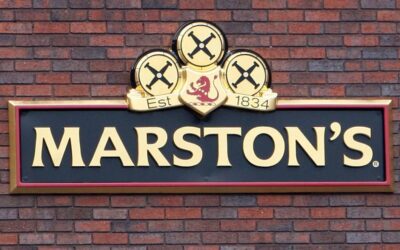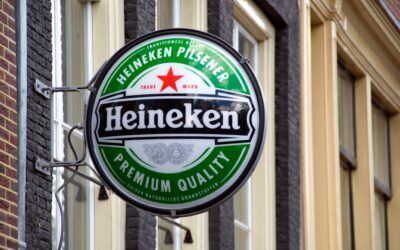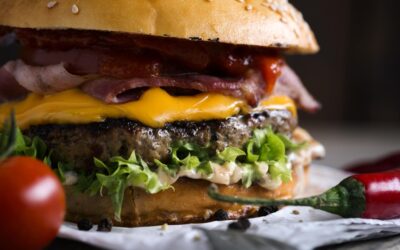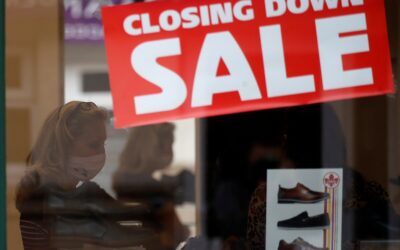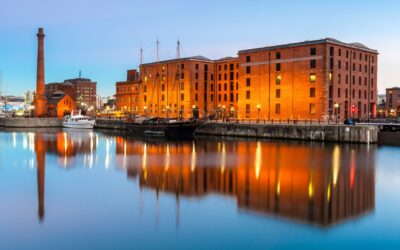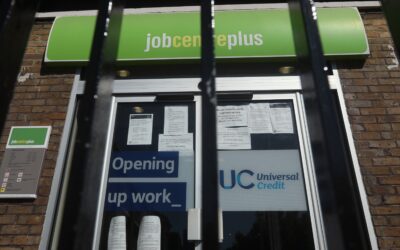The Liverpool-based company, a major supplier of tuna to UK supermarkets, said the move would mean buying 16,000 fewer tonnes of Indian Ocean yellowfin per year by 2022.
It follows an announcement by Tesco last month that it would stop sourcing tuna from the Indian Ocean unless a plan is implemented to reduce catch levels and restore the fish population. Co-Op also reaffirmed its commitment not to sell any own-brand yellowfin tuna.Stocks of tuna have dropped rapidly in the Indian Ocean after years of overfishing, with environental groups warning that urgent action is now needed.
However the management body that oversees fishing in the area, the Indian Ocean Tuna Commission (IOTC), has failed to reduce quotas.
Read morePrinces said it had already reduced its catch in the region by 40 per cent and hoped its additional voluntary cut would pressure the IOTC to take action ahead of its annual meeting in November. Neil Bohannon, group director for fish at Princes, said the company had supported a reduction of yellowfin catch in line with scientific advice.
“Our action alone however will not be enough, the IOTC needs to take action to with all gear types and fleets to reduce catches by 25 per cent from 2017 levels,” he said.“It is clear we need a credible recovery plan to be agreed by all parties, delivering stock rebuilding within two generations. With our voluntary reduction of Indian Ocean yellowfin in excess of the scientific advice, we are demonstrating our commitment in supporting this recovery”.
He added: “Sustaining the seafood economy is reliant on long term sustainable tuna and the IOTC needs to show leadership and take firm action.”
Read moreMarcel Kroese, WWF’s global tuna leader, said: “The species is in a critical state and a plan to rebuild a healthy stock is urgently needed. The Indian Ocean Tuna Commission meeting in November is an important opportunity for member states to come together to act to save the yellowfin tuna stock from collapsing.”The Global Tuna Alliance, a group of retailers and suppliers, has proposed a 25 per cent cut to tuna catches in the Indian Ocean. It estimated that would allow stocks to recover to a sustainable level within two generations.Executive director of the Global Tuna Alliance, Dr Tom Pickerell, said: “This is a very important announcement by Princes. Action is urgently needed on overfished yellowfin stocks, and it is great to see an individual company making such significant strides. “What is crucial now is that the IOTC supports these efforts with a formalised and scientifically sound rebuilding plan – this is what the Global Tuna Alliance has been asking of all IOTC delegates. If properly managed there will be enough tuna for everyone – it’s not rocket science; a 25 per cent cut in catches now will rebuild the stock”.
The Independent Articles
Pub chain Marston's cuts 2,150 jobs, blaming government coronavirus restrictions
Pub chain Marston’s is making 2,150 furloughed workers redundant after the government announced new coronavirus restrictions.The pub and brewery group blamed recent measures to tackle a surge in Covid-19 cases, including a 10pm curfew for hospitality venues and a three-tier lockdown that means sites not serving food must close in high-risk areas.
The company, which employs 38,000 people across the UK called for “urgent” help from the government to protect jobs in light of the new rules.Announcing the job cuts on Thursday, Marstons said: “The introduction of these further restrictions and guidance affecting pubs is hugely disappointing in view of a lack of clear evidence tying pubs to the recent increase in infection levels, and our own data which suggests that pubs are effective in minimising risks.”The company said it will also launch a further cost-cutting plan by the end of the year. Eight of Marston’s’ 21 pubs in Scotland are closed as well as further sites in Liverpool.Read moreRalph Findlay, chief executive of Marston’s, said: “The additional restrictions which have been applied across the UK most recently present significant challenges to us and will make business more difficult for a period of time.
“I very much regret that the consequence of this is that the jobs of around 2,150 of our colleagues will be impacted, but it is an inevitable consequence of the limitations placed upon our business.
“We will be looking at our cost base further in the coming weeks.”
Heineken firm Star Pubs fined £2m for forcing tenants to sell their alcohol
Heineken-owned pub group Star Pubs has been fined £2 million for allegedly forcing tenants to sell “unreasonable levels” of its own alcohol.Investigators discovered that Star had continued to impose its own Heineken beers and ciders on pub managers when they asked to go free of their ties with the brewer, despite repeated interventions by regulators.Officials found Star guilty of serious and repeated breaches of the Pubs Code over three years. A total of 12 violations were identified.The Pubs Code is a legally enforced document regulating the relationship between individual tenants and pub companies which have commercial links to brewers and own more than 500 pubs in England and Wales.Pubs Code adjudicator Fiona Dickie said: “The report of my investigation is a game changer. It demonstrates that the regulator can and will act robustly to protect the rights that Parliament has given to tied tenants.
“I will be holding discussions with all the companies I regulate following my findings about how they will ensure they are code compliant.
“My message is that if anyone previously had any doubts about my resolution to act when I find breaches, they can have no doubt now.”
Read moreStar, which leases 1,900 pubs across England and Wales, has said that it is considering an appeal against the fine in the High Court.
Lawson Mountstevens, Star Pubs managing director, said: “We are deeply disappointed and frustrated at the outcome of this investigation. There are many aspects of the report that we fundamentally disagree with.
“This penalty is unwarranted and disproportionate and comes at a time when the entire sector is in serious financial crisis as we work around the clock to support our pubs and licensees to keep their businesses afloat.”
The probe was the first of its kind after the Pubs Code became law in 2019. The new rules give pub managers the right to pay market rent instead of agreeing to buy a certain amount of beer from their landlords.However, the adjudication panel reported that between July 2016 and August 2018, 96 tenants who requested the market rate lease were told that 100% of the keg beer they sold had to be Heineken brands.
Gourmet Burger King to close restaurants and cut 326 jobs despite rescue deal
Gourmet Burger Kitchen is to cut 362 jobs despite being bought in a rescue deal byb Boparan Restaurant Group.
GBK said it would close 26 stores after a pre-pack administration process. A further 35 sites and 669 jobs will be saved, the company said on Wednesday.The chain has been bought in a rescue deal by British poultry tycoon Ranjit Boparan, who has been known as the “Chicken King”.Mr Boparan’s company owns chains including Ed’s Diner and Harry Ramsden’s, as well as Birmingham-based meat processing firm 2 Sisters group, the UK’s largest food company by turnover.
He also bought Carluccio’s after it went into insolvency early in the pandemic.GBK said it had started to see improvements in trading last year after a major restructuring process in 2018, which saw it shut a raft of sites.
Read moreHowever, the company, which had been owned by South African group Famous Brands, said it slid into administration after the virus impacted upon its liquidity and potential to be sold as a solvent business.
The deal comes after a string of administrations, closures and sales of casual dining restaurants. Wagamama, Cafe Rouge and Burger King are among the well-known high street names to look at restructuring as the pandemic worsened an already difficult outlook.
Gavin Maher, joint administrator at Deloitte, said: “As with a number of dining businesses, the broader challenges facing ‘bricks and mortar’ operators, combined with the effect of the lockdown, resulted in a deterioration in financial performance and a material funding requirement.
“We have been working closely with the management team under very difficult market conditions to try and find a funding solution and I am glad to be able to announce the rescue of this well-loved brand together with a large proportion of the sites and workforce.
“However, it’s clearly disappointing that a number of sites have had to close resulting in today’s redundancies.
“We would like to thank all of those involved in the transaction, including our legal advisers, DLA Piper, and wish the management team, workforce and the new owners, Boparan Restaurant Group, every success in now taking the business forward.”
How Amazon can avoid UK’s new tax on technology companies, but small businesses will pay
Amazon will not have to pay a new tax on digital services, but smaller businesses that use the tech company’s platform will have to cough up.So much was “revealed” this week, sparking anger in one Conservative peer who described it as “absolutely outrageous”, according to the The Times.It appears the lord in question may not have been paying attention earlier in the year when the government confirmed it would go ahead with the tax and how it would work; or in 2018 when Philip Hammond first announced it. By design, the tax is levied on digital services, not online sales. For Amazon, this means the fees it charges thousands of businesses to use its online marketplace. Amazon said in August that it would simply pass the charge on to its customers. Apple has said it will pass the tax on to app developers and Google announced it will raise fees for advertisers.So why is a tax sometimes referred to as the “Google tax” unlikely to have much impact at all on those it was aimed at? The government does not want to charge a levy on the sales of all online retailers. Instead, it is trying to collect a slither of the vast profits made by multinational technology platforms, some of whom, it’s fair to say, have been running rings around outdated tax systems for years.Read moreTo do this, it has targeted digital services, with some unintended consequences.
What is really needed to level the playing field, save UK town centres and ensure global tech monopolists pay their fair share is a proper international agreement on tackling tax avoidance.The UK’s digital services tax (DST) is a poor consolation prize, as are similar measures in France, Italy, Turkey and elsewhere. Multinational tech firms will pay 2 per cent to HMRC on revenues related to “provision of a social media service, internet search engine or online marketplace”.The issue is not Amazon’s digital services but that the “broader structure that allows it to shift most of its taxable profits out of the UK”, he says.Amazon accounts for its logistics business in the UK but its European sales in Luxembourg, a country with an extremely welcoming attitude to big businesses that like paying low tax rates.Not only does Amazon’s Luxembourg subsidiary enjoy a low tax rate, it often reports a loss, explains Paul Monaghan, of Fair Tax Mark (Amazon argues these losses are due to its high level of investment). “This generates enormous tax reliefs that can be used in the future to ensure that little or no tax continues to be paid,” says Monaghan. Even a broader DST would make little difference to this reality, and would not address tax avoidance by non-digital multinationals.
Alex Cobham, chief executive of the Tax Justice Network, adds: “More than a trillion dollars of profit worldwide is currently declared in jurisdictions other than where the real activity takes place, so this is a first-order problem for the global economy that goes well beyond Amazon or a handful of digital companies.”Read moreThat means progress on reducing the $500bn thought to be lost to corporate tax avoidance each year is reliant on an international agreement which, after years of negotiations, is not yet close to a satisfactory conclusion.The OECD, which has taken the lead on negotations, this week unveiled deeply disappointing plans to clamp down on corporate tax havens, but Cobham remains hopeful that the process can succeed.
“The central logic is correct: we need to tax multinationals according to where their real activity is. “That would mean the UK taxing a share of Amazon’s global profits in proportion to the share of Amazon’s activity that takes place in the UK – the share of employment and sales, that is. And that approach needs to be applied to all sectors.”An Amazon spokesperson said: “Like many others, we have encouraged the government to pursue a global agreement on the taxation of the digital economy at OECD level rather than unilateral taxes, so that rules would be consistent across countries and clearer and fairer for businesses. “As we’ve previously indicated, the way that the government has designed the Digital Services Tax will directly impact the businesses that use our services.”
Is the government neglecting the health of the UK economy in this pandemic?
Members of the Scientific Advisory Group for Emergencies (Sage) don’t think ministers are doing enough to contain the spread of coronavirus.Yet many in Conservative Party circles feel that the new restrictions imposed in recent days go too far, and claim they will excessively damage the UK economy. They complain that the advice from scientists is not being appropriately balanced with advice from economists and people in business.This seems to reflect a tension within the cabinet too, with the chancellor reportedly playing a leading role in rejecting the proposal from Sage for a national “circuit breaker” lockdown three weeks ago on the grounds of its harmful impact on the economy.
As Liverpool enters tier three lockdown, closure isn’t an option for some hotels
The government’s new three tier lockdown system kicks in today with regions of England graded according to the severity of the coronavirus infection rate in the area.While most of the country is currently in the medium (tier one) category, which enforces the existing rule of six and 10pm curfew for pubs and restaurants, the Liverpool city region, with just over 630 cases per 100,000 residents, is the only area to be placed in the very high (tier three) category. Boris Johnson has made it clear that, without further intervention, the NHS could be put under untenable pressure.It means 1.5 million people across Liverpool city and the surrounding boroughs of Halton, Knowsley, Sefton, St Helens and Wirral are now under the most stringent new restrictions whereby households must no longer mix indoors or at outdoor hospitality venues; gyms, pubs and bars have been ordered to close; and there is guidance against all but essential travel in and out of the area. Shops, schools and universities, though, will remain open.The new restrictions have come as a heavy blow for local hoteliers and business owners who have relied heavily on the staycation market since July.2 Blackburne Terrace is a luxury B&B in Liverpool’s Georgian Quarter. Owners Glenn and Sarah Whitter took the difficult decision not to reopen in July, but they remain positive for 2021.Watch more“We thought we may open in late autumn but have taken a cautious approach and now see spring as our new opening date”, says Sarah. “It’s not an easy decision to make but health comes first. I’m anxious for the city itself but, personally, we’re just tightening our belts and taking a long view”.For other hoteliers, closure isn’t an option as funding is currently only offered to the pubs and bars who have been forced to close.At the beginning of the year, Lock & Key Hotel on Duke Street was set to expand into the neighbouring building but plans were halted in March when lockdown was imposed on the country. The 14-bedroom boutique hotel reopened in line with national guidelines on 4 July and experienced high occupancy throughout July and August as locals took advantage of childcare for the first time since before lockdown, and national visitors included Liverpool on northern road trip routes. But the hotel was inundated with cancellations as soon as the new restrictions were announced at the government press conference on 11 October. While co-owner and hotel director Andrew Spencer said they will survive the next few months, and will be able to keep on their lean team of staff, they will be relying on a hyper-local staycation market. Large crowds pour onto streets in Liverpool on eve of tier three restrictions“Back in 2016-17, we designed our rooms around an in-room cocktail offer and that’s now more relevant than ever,” says Spencer. “We’ve invested in tablet devices for each room that allow guests to order from the bar. Occupancy will be much lower for a while, but hopefully in-room spend will increase while bars and pubs are closed and guests can order drinks to their room post 10pm.” Spencer and his business partners own the building and so their financial stability is very different to that of many other business owners around the city.Hope Street Hotel was also in the midst of a major expansion when lockdown hit in March. The addition of 61 rooms, spa, indoor and outdoor pools, cinema and additional conference facilities was delayed by five months, but the development is now close to completion. Last week, the hotel was named as the UK’s best city hotel for 2020 by The Times yet the mood here is one of frustration rather than celebration.“With so many livelihoods at stake, these three-tier restrictions are hugely worrying and damaging for the hospitality sector,” says chief executive Dave Brewitt, who feels the measures are inappropriately targeted, unfocused and unsupported. Read moreHe added: “There seems very little evidence that the hospitality sector has performed badly in helping to prevent the spread of the virus. We are a very heavily regulated industry with exceptionally high standards around safety”.Things are more worrying at Albert Dock, Liverpool’s most visited attraction, as high rent coupled with reduced visitor numbers could decimate independent businesses trading there. Dockside venues are populated mostly by tourists and regional visitors and so footfall is expected to drop drastically while travel into the city is restricted. The closure of M&S Bank Arena earlier in the year also had a big impact on waterfront bars and restaurants. Chris Edwards is co-owner of Mexican restaurant Madre, which he predicts will need to close due to the impact of the tier three travel restrictions. “With no rent relief on Albert Dock, it will be hard to break even”, says Edwards. “The cash at the bank will eventually run out and there’s no support for us while we’re still trading. We may have to close for the foreseeable and make a case for the business being unviable due to reduced footfall”.He fears that Albert Dock – which took decades of redevelopment and EU funding to become what it is today – will be set back and take a long time to recover.“We can’t afford businesses to fold because the loss of income from business rates will push council finances over a cliff,” Liverpool city mayor Joe Anderson said. “In Liverpool, 48 per cent of our business rates come from the hospitality sector.”Leaders from Liverpool city region’s six local authorities have requested a “clear definition of the exit strategy from tier three.” The measures are currently in place for six months with a monthly review by central government, but so far it’s unclear what will be required to downgrade the region to tier two.The mood in Liverpool – a defiantly Labour stronghold – is a mix of frustration, disappointment and contempt. There’s a feeling of being cut off from the rest of the country (one not unfamiliar to some) and a painful awareness of the regional and national divisions that the blameworthy, tiered system has already thrown up, implicating the north, North West and of course Merseyside most potently. Liverpool has an unyielding sense of loyalty, togetherness and independence. The whole city is feeling the unjust pressure on local businesses and there’s a growing anger on the lack of clarity for the shuttered arts and music venues that have helped to shape the city. Liverpool-born DJ Yousef is concerned about the long-term impact on both the freelance economy and the city as a whole. “Music has been the beating heart of Liverpool for almost 100 years,” says Yousef, who co-founded club night Circus and record label Circus Recordings. “Without it, the city loses a massive part of its identity”.The message from business owners is clear: the incredibly damaging measures of tier three lockdown need to be underpinned with clear and thorough guidance and comprehensive financial support to protect jobs and livelihoods that have been decades in the making.
‘Hard yards’ ahead for UK economy as second coronavirus wave hits, Bank of England governor warns
The UK is not going through a v-shaped economic recovery and the “hard yards” are still ahead as a new wave of coronavirus cases hits, the governor of the Bank of England has warned.”Some sectors of the economy have recovered much more rapidly than others and some are still struggling to recover, for well-known reasons,” Andrew Bailey told the House of Lords Economic Affairs Committee.“My view is the recovery will take time… The hard yards are still ahead of us and, unfortunately, since we first said that back in August, things have become even more stark,” Andrew Bailey said.“We have seen quite a strong recovery as the lockdown restrictions have been lifted, but it’s a very uneven recovery, whatever the aggregate number looks like, it hides a very uneven pattern.”The economy remains between 9 and 10 per cent below where we were at the end last year, according to the Bank’s best estimate. Watch more”Nine per cent is a massive number,” Mr Bailey said. “Any talk of a v-shaped recovery has to be put into perspective.”
The UK faces two major obstacles to growth, he said. First, a second wave of coronavirus cases that will result less activity due to further restrictions and because people are worried about their health.”Second… we saw a very fast recovery because activity was put on hold and then pretty much the same activity returned.””Now have to ask the question, to what extent will Covid have a lasting impact in the sense that there will be structural change resulting from it? Either because there are businesses that are not able to survive or, even more fundamentally, because there are activities we used to undertake that we just don’t undertake any more and won’t go back undertaking for the foreseeable future.”It’s that structural change which of course is much more difficult in the economic context because it can cause persistent unemployment.”
Asked whether he agreed with the International Monetary Fund (IMF) that governments should take advantage of low borrowing rates to finance investment and encourage the recovery, Mr Bailey said he would not comment directly on fiscal policy.However, he added: “There is scope to use the public finances within that framework and I think the balance for all countries is using public finances aggressively in the teeth of the crisis and then having a view of what I’d call the longer-term sustainability.”Mr Bailey’s comments came after new figures showing redundancies jumped to a 10-year high in September.More economic pain will increase pressure on the Bank’s Monetary Policy Committee to cut its key interest rate into negative territory for the first time. The Bank recently wrote to high street to lenders asking how prepared they are to implement negative rates.
Coronavirus: Redundancies at highest rate in over 10 years, government statistics show
Figures released by the government agency on Tuesday show that unemployment continues to rise as a result of the economic downturn caused by coronavirus, with redundancies reaching their highest level since May to July 2009. Unions warned the UK was on the precipice of an unemployment crisis and urged the chancellor to reform his job subsidy schemes.Read moreFrom June to August this year, the number of unemployed people in the UK jumped by 138,000, increasing UK unemployment to 1.52 million.As a result, the rate of unemployment now stands at 4.5 per cent, up from 4.1 per cent in the previous quarter. Young people have been hit hardest with employment among those aged 16 to 24 dropping to a record low of 3.54 million.In total, 673,000 jobs were lost between March and September.However, the true unemployment picture is likely to be significantly worse than the headline figures suggest because furloughed workers are classified as employed. Some 4.8 million people were on the Job Retention Scheme in September. It comes to an end in little over two weeks, to be replaced by the less generous Job Support Scheme which incentivises employers to make staff redundant rather than keeping them on but reducing their hours.The official data show that weekly hours worked, which some economists believe give a more accurate picture of the jobs market, are well down on pre-pandemic levels.Jonathan Athow, deputy national statistician at the ONS, said: “The latest monthly tax numbers show that the number of employees on the payroll was little changed in September.
“However, in total there were still nearly 700,000 fewer than in March, before the lockdown. “Our newly adjusted survey figures show that in the latest period almost half a million fewer people were in work than just before the pandemic, while almost 200,000 others said they were employed but were currently not working nor earning any money.”The ONS data comes the day after some business leaders expressed their disappointment at Boris Johnson’s new three-tier Covid-19 alert level, which they fear will lead to more closures and job losses unless further government support is forthcoming. Responding to the latest figures, Rishi Sunak, the chancellor, said: “I’ve been honest with people from the start that we would unfortunately not be able to save every job. “But these aren’t just statistics, they are people’s lives. That’s why trying to protect as many jobs as possible and to helping those who lose their job back into employment, is my absolute priority.”TUC general secretary Frances O’Grady, said: “We are on the precipice of an unemployment crisis. Ministers must act now to protect and create jobs. The expansion of the job support scheme is a step in the right direction, but it still falls short.“Wage replacement should be 80 per cent for businesses who have to shut. We need a more generous short-time working scheme for firms which aren’t required to close but will be hit by stricter local restrictions. And self-employed people in local lockdown areas need help too.”
Mitchells and Butlers: Firm behind brands including Harvester, All Bar One and O’Neill’s consulting on redundancies
The hospitality firm behind brands including Harvester, All Bar One and O’Neill’s is reportedly beginning redundancy consultations with staff as the impact of the virus on the sector continues to bite. Mitchells and Butlers, which also owns the Toby Carvery brand, employs some 44,000 across 1,700 pubs and restaurants. It is currently unclear how many jobs may be at risk.A spokesperson for the firm told the BBC: “Our industry is operating in exceptionally challenging and uncertain circumstances.”While we have worked incredibly hard to make sites Covid-19 secure and keep staff and customers safe, we are facing significant difficulties from the recently introduced 10pm curfew for pubs, bars and restaurants, new enforced closures and tapering government support that doesn’t go far enough.”It comes after the government announced new support measures for businesses closed down by restrictions introduced to stem the spread of the virus. However while pubs and bars may be shuttered under the harshest local lockdown measures announced by the government, making them eligible for business grants and support to cover two thirds of staff wages, restaurants have been told to remain open.The spokesperson added “With trading restrictions and uncertainty likely to continue for the foreseeable future, we strongly urge the government to step up the level of support it is offering to an industry which has been repeatedly singled out and taken the full brunt of restrictions.”In September the firm reported total sales across the year had fallen 35 per cent due to store closures and sharp slump in demand amid widespread COVID-19 restrictions.“The future remains both challenging and uncertain, with only this week a curfew and other additional restrictions being imposed on how and when we can operate,” the UK pub operator said at the time.


